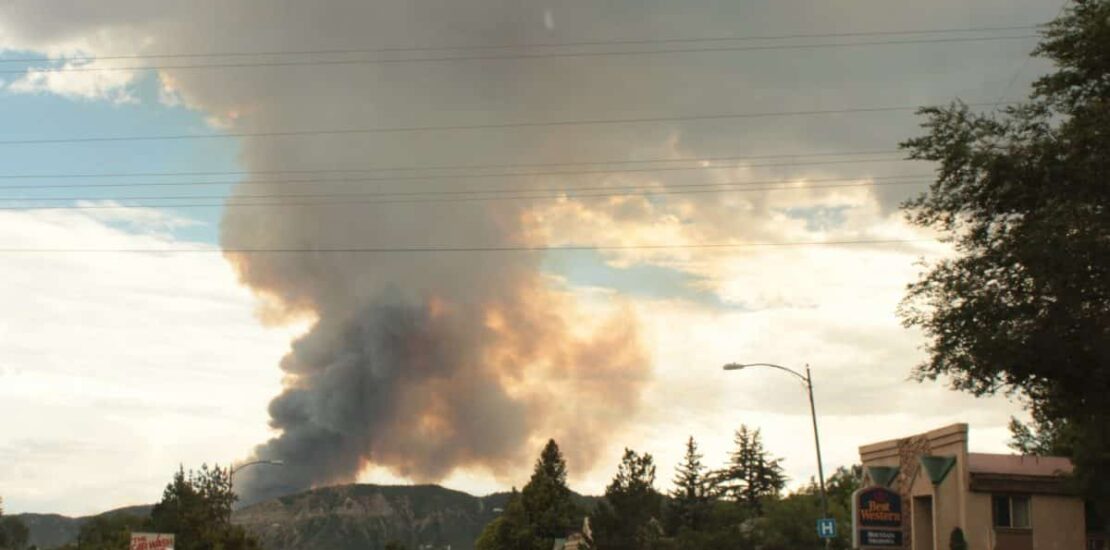- September 25, 2020
- Posted by: Felix Gomez
- Category: News

If you live in an area that has the potential for wildfires, losing your home to their destruction and how you will recover is always a concern. Here are some things to know about how insurance works when it comes to wildfires.
Insuring Against Wildfires
It’s not always possible to avoid the devastation of a wildfire so it’s important to protect yourself financially with insurance. Here are the coverages you should consider:
- House – A homeowner’s policy typically covers damage caused by fire, including wildfires. The policy will pay to repair or rebuild your home and take care of smoke damage. If you live in a condo or co-op you should check your by-laws or lease to sort out your responsibilities versus those of the association.
- Outbuildings – Structures like a garage or a shed are covered.
- Belongings – A homeowner’s, condo, or renter’s policy covers your belongings for loss or damage, theft or vandalism (such as if looting occurs after a wildfire), and for homeowners, trees or shrubs are covered, as well.
- Living Expenses – If your home is uninhabitable due to a wildfire, your policy will reimburse you for any living expenses you incur (such as a hotel room, meals out, etc.).
- Vehicle – The comprehensive portion of an auto policy insures your car against fire damage and vandalism.
- Business – The typical business owner’s policy covers fire damage to the building, office space, and equipment/inventory. Business income/business interruption insurance covers the profits a business would have earned, as well as extra operating expenses incurred due to a covered loss (such as the cost of operating out of a temporary location).
The amount of your payout is determined by the terms and limits of the policy. It’s a good idea to keep an up-to-date home inventory and copies of important papers offsite so you don’t lose them to fire.
If you experience wildfire damages, here are some things you’ll need to do:
- Contact your insurer – An adjuster may visit to assess the damage, and you’ll probably need to provide a “proof of loss” form, which includes a description of damaged items, when they were purchased, and what it will cost to repair or replace them.
- Keep everything – If possible, keep damaged items until your insurer has had a chance to assess the damage and make a claim report.
- Know your responsibilities – Ask your insurer about claim filing requirements, such as repair estimates.
- Know the time limits – Check with your insurer what the time limits are so you don’t miss your chance to file a claim.
Can I Lose Coverage?
There are rules in place that dictate when an insurance company can cancel, non-renew, or decline to issue a residential property insurance policy due to wildfire risk.
- After a policy has been in effect 60 days or more, the insurer is restricted from canceling it before the end of the policy term except for limited reasons, such as physical changes to the property that make it uninsurable.
- Depending on the reason for cancellation, the insurer must give either 10 or 20 days’ notice.
- In order to non-renew a policy, an insurer is required to give the insured at least 45 days’ notice prior to the expiration date and must provide the reasons for the nonrenewal.
Here’s what to do if you receive a notice of cancellation or non-renewal:
- Contact your insurer – Find out if there’s anything you can do to avoid cancellation or nonrenewal.
- Shop around – Different insurers have different underwriting guidelines and one insurer may issue a policy even when another one won’t.
- Apply for FAIR – You may apply for coverage through the California Fair Access to Insurance Requirements (FAIR) Plan if there are no other options. A FAIR Plan policy covers fire but doesn’t include all the perils and coverages of a traditional residential property insurance policy. You may be able to purchase a “Difference in Conditions” policy, in addition to the FAIR Plan policy, that will cover these additional risks.
If you have questions about wildfires and insurance coverage let us know and we’ll gladly help you however we can.
